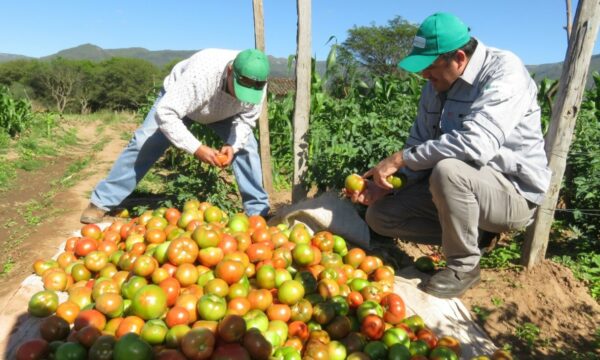Breadfruit has been coined the new ‘super-fruit’ and according to some has the ability to alleviate world hunger. However, it has recently been discovered that breadfruit may also have a very different role in saving lives. Scientists have isolated three chemicals produced in the male inflorescence of the breadfruit that are extremely effective at repelling flying insects, the most significant of which are mosquitoes.
What is Breadfruit?
Breadfruit, also known as ulu is most commonly grown in sub-tropical areas and has long been a major staple of many Pacific islands. From here its cultivation has spread to the Caribbean and Africa where it is mainly grown by subsistence farmers. Its Latin name Artocarpus altilis is derived from the Greek, artos meaning bread, karpos meaning fruit and altilis meaning fat. Once cooked, the fruit has a starchy texture and tastes just like……you guessed it….bread!
There are a number of ways to prepare breadfruit, it can be boiled, roasted or steamed. A favourable alternative preparation method involves fermenting the fruit in a hole lined with banana leaves, after fermentation the fruit resembles sour dough and can be baked.
The tree can also be used in construction and has many ecological and environmental benefits such as the provision of habitat for pollinators and seed dispersers and CO2 reduction. It is hailed by some as the ‘tree of life’.
Effective insect repellent
Scientists from the Agricultural Research Service (ARS) and the University of British Columbia have identified three compounds in breadfruit male inflorescences that effectively repel insects. These include capric, undecanoic and lauric acids, which are saturated fatty acids and were discovered to be more effective at repelling insects than DEET (a common active ingredient in insect repellents).
The scientists however, are not the first to realise the repellent properties of breadfruit. It has been used as a folk remedy to repel mosquitoes by many indigenous peoples of Pacific islands. Dried clusters of male flowers are burned to warn off flying insects.
Breadfruit offers a low-cost alternative insect repellent to those in subtropical areas that do not have access to and cannot afford expensive pharmaceutical repellents.
Contribution to food security
Many believe that breadfruit may be a solution to world hunger. The breadfruit tree has the ability to grow easily in a broad range of subtropical and tropical ecological conditions and requires minimal inputs of fertilisers and labour. The areas in which it thrives coincide with those home to around 80% of the world’s poorest and malnourished populations. Due to its verticality of production, breadfruit yields are superior per hectare of land when compared with root and tuber crops, one tree can produce up to 400-600 fruit. Breadfruit is also high in carbohydrates, dietary fibres and minerals.
Organisations such as the National Tropical Botanical Garden’s (NTBG) Breadfruit Institute and Global Breadfruit are working to promote the cultivation of breadfruit in areas most in need. One such project is involving reproducing breadfruit trees in Hawaii and planting them in areas most in need. A partner of Global Breadfruit, Joseph Schneider said that ‘Every time we plant one of these trees, we’re reducing the susceptibility to famine and starvation in the country where the tree is growing’.
A Hawaii-born chef, Olelo pa’a Faith Ogawa says ‘I feel it’s the food of the future, if I were to speak to the breadfruit spirit, it would tell me: ‘Grow me! Eat me!’ It can feed villages!’
Sources:
- Fresh Plaza (28th Nov 2013) US: Studies confirm breadfruit’s ability to repel insects.
- Fresh Produce Journal (26th Nov 2013) Breadfruit ‘most effective’ insect repellent.
- National Tropical Botanical Garden Breadfruit.
- Huffington Post (14th Nov 2013) Breadfruit: The Next Superfood to End World Hunger?
- The Wall Street Journal (1st Nov 2013) ‘Food of the Future’ Has One Hitch: It’s All But Inedible.
- Journal of Agriculture and Food Chemistry (16th March 2013) Isolation and Identification of Mosquito (Aedes aegypti) Biting Deterrent Fatty Acids from Male Inflorescences of Breadfruit (Artocarpus altilid (Parkinson) Fosberg).
4 Comments
Leave a Reply
Related News & Blogs
Advancing pest management in Grenada through PlantwisePlus biological control training
In a remarkable effort to enhance agricultural practices, Grenada’s Ministry of Agriculture recently hosted a pivotal training course on biological control organized and co-funded by CABI’s PlantwisePlus programme in collaboration with Sandals Foundati…
26 September 2024








“Breadfruit” is the just newest thing for me…… It save lives that is most wonderful and helpful for our world.
Breadfruit is such a newest thing for me..It can save lives that is very helpful for the world. I read whole blog, the Breadfruit is such a ‘tree of life.’ Wonderful..!
A solution to the huge Malaria issues? Solution to worldwide hunger? Not grain based!
*The source links are broken unfortunately*
[…] Burning a dried male breadfruit flower to repel insects (Image source) […]